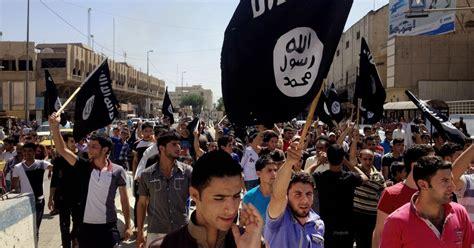
US warns of return of ISIS amid violence in Syria
Military commanders warned Saturday that the Islamic State terrorist group could exploit tensions and violence in Syria to mount a return to prominence.
In a statement, the United States-led multinational military formation known as Combined Joint Task Force — Operation Inherent Resolve called for “an immediate end to the continued clashes in the Deir ez-Zor region” in eastern Syria.
“Destabilization of the region caused by the recent violence has resulted in tragic and needless loss of life,” the statement reads. “It is imperative that all local leaders resist the influence of malign actors who promise many rewards but will deliver only suffering to the peoples of the area. This poses dire consequences and only allows for a situation that nobody welcomes — the resurgence of our common enemy — Daesh.”
The United States military and intelligence services often use the Arab acronym “Daesh” for the Islamic State. It is more popularly known in the West as ISIS.
Tensions in eastern Syria are complex and do not, for the time being, seem to immediately concern a resurgence by jihadists. There have been repeated clashes between the Kurdish-dominated Syrian Democratic Forces and local Arab tribes in recent months, and the situation escalated dramatically this week after the SDF arrested a tribal emir, prompting indiscriminate shelling and sniper fire. Commentators have expressed concern over rumors of the SDF’s special forces carrying out reprisal killings.
The United States has trained and supported the SDF for years as it fights not only ISIS and al-Qaeda but Syrian government forces loyal to President Bashar al-Assad.
A report released Friday by the Middle East Institute, a non-partisan think tank, attributed the mounting violence in the region to years of built-up mistrust and resentment against the SDF, which has been accused of firing on demonstrations and killing civilians during anti-ISIS operations. Institute researchers said the issue is not as simple as Arabs against Kurds, because there are Arabs in the SDF coalition.
“The fighting must end, but the people of Deir ez-Zor cannot be expected to accept the conditions that led to this situation in the first place,” wrote institute scholar Gregory Waters. “This leaves the United States and the international coalition in a delicate but critical position. The U.S. has an interest in stopping the violence, even if that entails mediating between both sides. The coalition’s continued presence in northeast Syria and its partnership with the SDF is predicated on the counter-ISIS mission, and therefore concerns over the impact this crisis will have on ISIS should be paramount. In that sense, any partial resolution that ends the fighting but does not address the underlying issues will only serve to bolster ISIS cells.”
Syria has been wracked by civil war for over 12 years. The government, with the assistance of Russia, Iran, and Hezbollah, is fighting numerous rebel groups, including Kurdish separatists, Turkish-backed fighters, al-Qaeda affiliates, the Islamic State, and the SDF. Many of the rebel groups are also violently opposed to one another and clash frequently.
The United States intervened in the region in 2014 after ISIS captured large swaths of eastern Syrian and western Iraq and declared a caliphate. The terror group’s brutality, including executions of prisoners and extermination of minority ethnic groups, earned it universal condemnation, and at various points in time it faced attacks from the U.S., Russia, the Syrian state, Kurdish forces, al-Qaeda, Hezbollah, and Iranian units deployed in Syria. ISIS lost its last major territorial stronghold in 2019, but it has continued on as an insurgent movement operating underground in Syria and Iraq. It also has affiliates worldwide.
Source » washingtonexaminer.com





